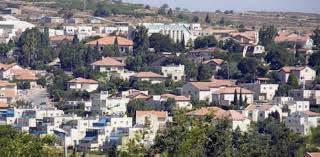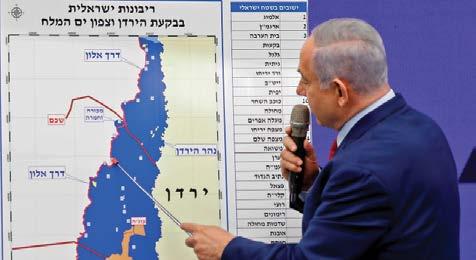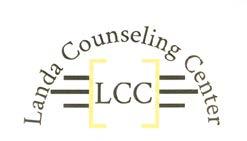
12 minute read
FEATURE
Thursday afternoons are often slow days for news in Israel. With most government offices closing early and the Knesset not in session, there is frequently little of importance for the media to dwell upon, barring a major security incident. Yet as the sunny Thursday in early September progressed, it became clear that something was brewing.
It began with a laconic statement announcing that Prime Minister Netanyahu would be giving a prime-time address to the nation later that day. While his aides refused to provide further information, rumors swirled that the speech would be about something other than the country’s second round of elections scheduled to take place the following week.
Advertisement
“At 6 PM tonight, get ready for the ‘BOOM,’” tweeted Netanyahu’s young and aggressive spokesperson Yonatan Urich. 6 p.m. came and went, yet Netanyahu’s speech didn’t materialize. It was at 8 p.m., fully two hours later, that Netanyahu appeared before the public and delivered a bombshell: Should he win the mandate from the people to remain as the country’s highest elected official, he would annex the Jordan Valley immediately and make it part of Israel proper.
Flanked by a giant easel featuring a map of the Jordan Valley, Netanyahu said that such a move would happen “immediately” in coordination with the United States.
“There is one place where we can apply Israeli sovereignty immediately after the elections,” Netanyahu said. “If I receive from you, citizens of Israel, a clear mandate to do so…today I announce my intention to apply, with the formation of the next government, Israeli sovereignty over the Jordan Valley and northern Dead Sea.”
With his announcement, Netanyahu became Israel’s first-ever sitting prime minister to attempt to annex parts of Judea and Samaria, also known as the West Bank. While many politicos had vowed to go through with such a move, they quickly jettisoned their campaign promises after taking office in the face of withering international pressure.
Netanyahu’s announcement failed to help his election prospects, and his Likud party dropped by three seats a week later. But with the country in the midst of the worst political deadlock since its founding, no party could muster up the necessary majority to form a government, sending Israel to an unprecedented third round of elections in under a year.
Yet Netanyahu now has another chance to go through with his long-awaited plan, after President Trump unveiled the “Deal of the Century” this past January. As part of the plan, Israel would be allowed to annex up to 30% of the West Bank as soon as July. Outside of the White House, right-wing Israeli journalists ecstatically accepted the news. After more than half a century of endless struggle to prevent parts of their biblical heartland from being given away, it seemed like their dream was finally becoming a reality.
Many things have changed since that celebratory evening in Washington, D.C. The coronavirus reached America’s shores, devastating the United States, while Israel finally got its first government in over a year. Yet one thing remained constant: On July 1, Netanyahu intends to finally apply Israeli law on the Jordan Valley and some parts of Judea and Samaria, despite threats of a diplomatic tsunami, a violent Palestinian Intifada, and the rupture of Israel’s covert relations with Arab countries.
“J udea and Samaria” is the term used to refer to territory Israeli captured from Jordan during the Six Day War in 1967. Prior to the war, four Arab armies massed on Israel’s borders. With the IDF outnumbered by a margin of 10 to 1, many feared that the 19-year-old Zionist project was over; a common joke spoke of the final Israeli departing the country to “turn out the lights.”
Yet, rather than be destroyed by the rampaging Arab militaries, the IDF trounced its enemies in under six days, capturing the Sinai Desert and Gaza from Egypt, the Golan Heights from Syria, and East Jerusalem and the West Bank from Jordan. The ho
The “settlement” of Gush Etzion

liest city in Judaism, Jerusalem, was annexed immediately after the war by Prime Minister Levi Eshkol, while Menachem Begin applied Israeli law to the Golan Heights in 1981.
The hot and desolate Sinai, meanwhile, was returned to Egypt in 1981 as part of the Camp David Peace Accords. In 2005, Israel left the Gaza Strip, forcibly expelling its 9,000 Jewish residents. That left the West Bank as the only territory conquered in the miraculous war whose status remains up in the air until today.
Settling the Land
Initially, Israel’s government assumed that it would rapidly return the West Bank to Jordan in exchange for a peace treaty. But as the years went on, no such treaty appeared on the horizon. In the meantime, a growing movement of Religious Zionist and secular Israelis known as “Gush Emunim” began to settle illegal wildcat communities in the West Bank in order to prevent the government from relinquishing parts of their biblical heartland.
In places such as Hebron, Gush Etzion, Shilo, and Elon Moreh, the hundreds became thousands, and then tens of thousands. Today, almost 500,000 Israelis – secular, religious, and haredi – live in 121 officially recognized settlements in the West Bank.
These Israelis, known worldwide as “settlers,” faced and still face significant legal, security, and political challenges. The international community largely views their presence as illegal, charging that it violates the Geneva Convention. With most of the world supporting a Two-State Solution and the establishment of a Palestinian State, Israel faces faced strong diplomatic pressure to reduce construction for its citizenry in Judea and Samaria.
Should Israel and the Palestinians ever reach the elusive peace agreement that would end the 150-year-old Arab-Israeli conflict, many of these settlers would likely lose their homes. The threat has appeared increasingly real during various rounds of peace some believe in the biblical mandate to settle the Land of Israel, others migrated over the “Green Line” in search of cheaper housing. No longer is the quintessential settler an armed and bearded knitted-kippah radical. Today, a third of Judea and Samaria residents today are haredim from Beitar Illit and Kiryat Sefer, while another 33% are secular.
talks such as Oslo and the Camp David Accords in the ‘90s-early 2000s.
In addition, Judea and Samaria are not officially part of Israel, but remain under military rule. This essentially classifies the settlers as second-class citizens and deprives them of basic rights afforded to every other Israeli. For example, all construction within the region must be approved by the IDF rather than the Housing Ministry, which oversees construction everywhere else in the country.
Despite all of the aforementioned difficulties, the overall settler population has grown consistently. The residents’ motivations are varied: while idents over the Green Line came a growing consensus across Israel that the Jewish State would retain some parts of the territory even in the event of an eventual peace deal. These areas are commonly called the “settlement blocs,” a term used to describe bustling metropolitan areas such as Gush Etzion, Ariel, and Beitar and Modiin Illit.
The Deal of the Century
With the surging number of res
Israel’s differentiation between settlement blocs and so-called “isolated settlements” likely to be destroyed under a potential treaty was never adopted by the international community. As the world saw it, there was no difference between building an apartment in Gilo, a 45,000-person-strong Jerusalem neighborhood, and a desolate caravan village on top of a hill in Samaria. According to them, both were constructed atop stolen land that rightfully belonged to the Palestinians and whose development constituted a breach of international law.
This line of thinking changed drastically under the Trump administration. The mercurial and unpredictable president, who enjoys bucking established wisdom, brought those same qualities to the table when hatching his own peace plan. With his views on the conflict honed by longtime Israel supporters such as David Friedman and Jason Greenblatt, Trump refused to see Jewish communities in Judea and Samaria as “stolen land.”
As a result, Trump’s “Deal of the Century” was a radical change from longstanding U.S. policy. For the first time ever, the Commander-in-Chief explicitly endorsed a potential Israeli annexation – and not just small parcels of land, but every settlement and the Jordan Valley. When the plan was presented in late January, it seemed that the Israeli Right’s dream was finally coming true.
That was then.
With annexation only weeks away, most Israelis remain apathetic. Busy with the coronavirus and the country’s economic crisis, a recent poll showed that only 4% of voters thought that applying Israeli law to the settlements should be a national priority. While the potential move spawned fierce opposition, it didn’t come from the center-left as expected, but from the group most expected to support
Netanyahu’s “bombshell” speech


Netanyahu with US Ambassador to Israel David Friedman and Tourism Minister Yariv Levin discussing Israeli sovereignty into areas of the West Bank earlier this year
it: the settlers.
The Yesha Council, an umbrella body representing the local municipalities over the Green Line, had originally viewed Trump’s peace plan with suspicion. Assuming that the annexation was tied to the Deal of the Century, they worried about the sections of the plan that guaranteed the establishment of a Palestinian state.
As time went on, their worst fears were realized. Not only did Trump’s peace initiative mandate that Israel recognize the State of Palestine, it demanded that Israel freeze all construction in Judea and Samaria for the next four years. After 10 debilitating years of zero building, many yishuvim are dying. Without an influx of young couples, places like Alon
TheYIEP@gmail.com | 917-209-8204 | www.theYIEP.com MS in CLINICAL MENTAL HEALTH COUNSELING
Upcoming program begins August 2020
Registration is now underway
Next MS in CMHC program begins January 2021
*Fully accredited graduate degree *Online program, accessible anywhere *For Men & Women *Program sensitive to Yeshiva & Chassidish students *Yeshiva degrees accepted as undergraduate degree *Reasonable tuition *Federal student loans available Bellevue University - YIEP is the only Orthodox sensitive program accredited by CACREP.
Many of our graduates are already employed. Graduates of this program, after passing the national exam and completing postgraduate experience, are eligible for state licensure as Licensed Mental Health Counselors (LMHC).
YESHIVA INITIATIVES EDUCATIONAL PROGRAMS
Bellevue University is accredited by The Higher Learning Commission (hlcommission.org), a regional accreditation agency recognized by the U.S. Department of Education.
SEE WEBSITE FOR DETAILS: WWW.THEYIEP.COM TheYIEP@gmail.com | 917-209-8204 | www.theYIEP.com
Shvut, Bet El, and Maale Adumim are aging; shuttered kindergartens are commonplace and housing prices are soaring due to reduced supply. Another four years of this would be a death blow to them.
Unlike virtually every other peace plan ever presented, the Trump administration does not demand that Jewish communities located over the Green Line be demolished. But from the Yesha Council’s point of view, the alternative is almost as bad. 15 thriving communities will remain in the heart of Palestine, surrounded by millions of Arabs and forbidden from expanding.
Even worse, the Palestinians would control the main traffic arteries. As a result, the settlers’ daily commute would be extended by hours, making their villages likely to wither and die. Who would want to move to the hamlet of Tekoa in Gush Etzion when the road to Har Homa is blocked, adding more than an hour of commute time into Jerusalem? Who would buy a home in Ariel when the drive to Tel Aviv or Jerusalem that once took an hour is now doubled? Which bank would give anyone a mortgage when they know the home you want to buy in Carmei Tzur is completely worthless?
As the target date for annexation looms, the fears of a Palestinian state have trumped the desire for the long-awaited annexation. The Yesha Council and its allies have pulled out all the stops to prevent it from going forward; the Religious Zionist Yamina party has already come out against it, while senior Likud lawmakers also have their concerns. Over the past week, the Samaria Regional Council has embarked on an expensive advertising campaign, putting up billboards all over Israel that call on Netanyahu and Trump to allow annexation without the accompanying Deal of the Century.
Meanwhile, the opposition from the group most likely to benefit has frustrated U.S. officials and Netanyahu alike. In an interview with the Israel Hayom daily on Monday, a senior member of the Trump administration called the settlers “crazy” for rejecting the deal. Netanyahu agreed, telling Yesha Council representatives last week that a friendly American administration and an international community preoccupied by the coronavirus presented a “once in a lifetime opportunity” to finally annex the disputed territories.
“After 70 years of expectations, the settlers, of all people, will be the ones who ruin the historic possibility of applying sovereignty. They are hovering around MKs, doing interviews in the press, coaching anyone they can against the plan, and they aren’t even completely familiar with all the details,” one Likud official said on Monday.
“The Americans are telling us something along these lines: ‘The entire Arab world is against the plan of the century, all the Europeans also oppose it, the American and Israeli left oppose it, and now even the [Israeli] right is against it – so why implement this plan at all?’
“What can we answer to these questions?”
Baltimore Jewish Home’s Business Card Board
One Man Band Reuven Meth 443.272.1325 Custom arrangements Custom drum kit Check out our Demos! www.musicbysegula.com

Accessible Transport LLC
Phone 410-852-8886
www.accessible-transport.com reservations@accessible-transport.com *** Whatever YOUR Transportation Need ***

RICK BERNARD Licensed & Insured
SHOMER SHABBOS
Doctor Appointments Social Outings Shopping Airports and MORE
CALL FOR YOUR FREE ESTIMATE TODAY!



Gedalia Kosoy
RESIDENTIAL AND COMMERCIAL ROOFING EXPERTS serving the Baltimore Metropolitan since 1997 | Family owned and operated
Avi Landa MS, LCPC, NCC
www.LandaCC.com Avi@LandaCC.com 443-613-6854 1002 Smoke Tree RD Pikesville, MD 21208

Clinical Counseling Services for adolescents/bochurim, adults, couples, and families.
Free Consultations
FULL SERVICE SALON
105 OLD COURT RD., BALTIMORE MD
OFF OF WALKER










